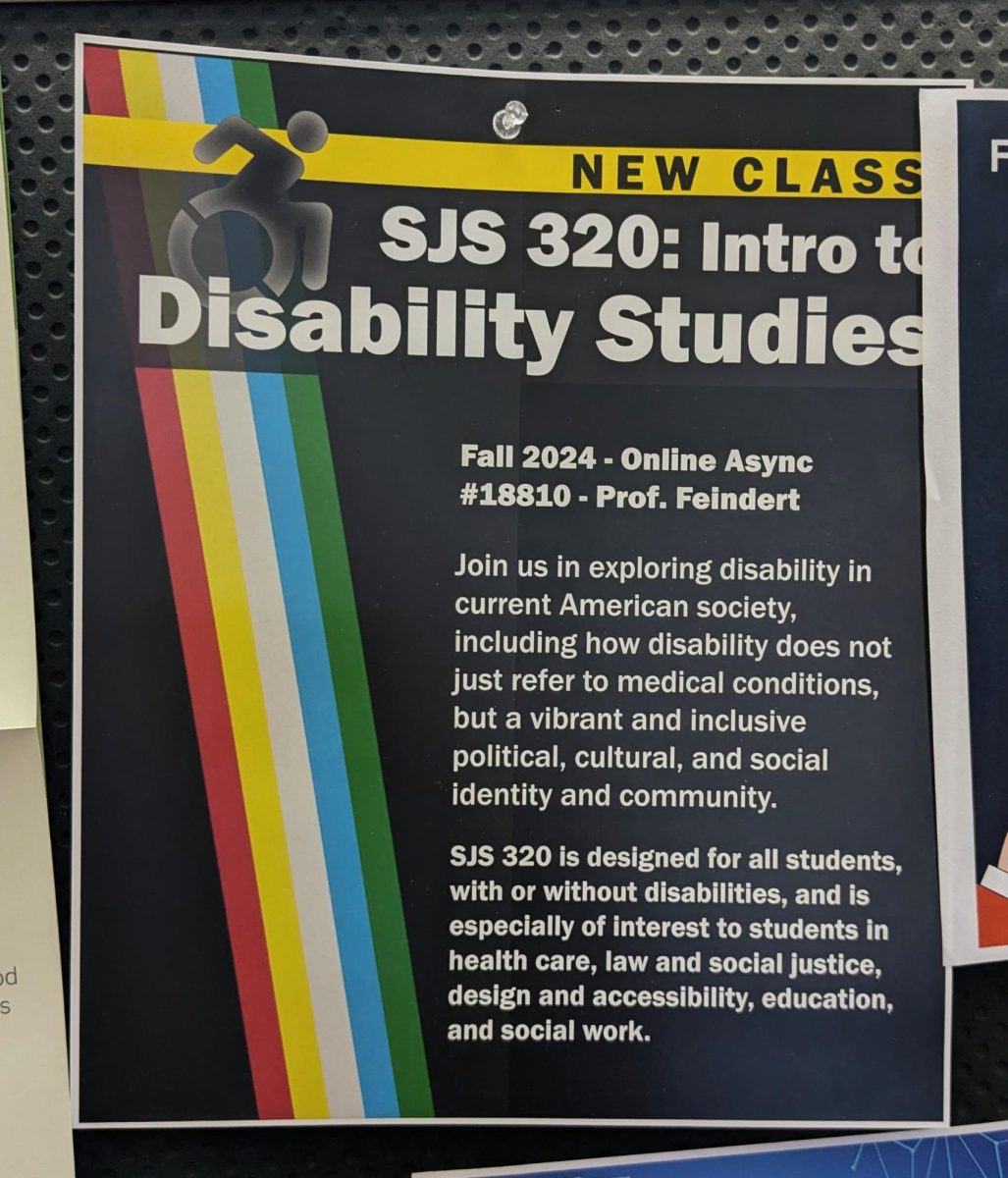The Social Justice Studies program on campus has launched an Introduction to Disabilities Studies class this fall, teaching students how to understand the legal and institutional effects of disabilities in our world.
This asynchronous course is taught by English Professor Kerstin Feindert, who said their motto for the class was a universal design, to have something for everyone.
Feindert, who uses they/them pronouns, also said that their goal for the class was “to make students more proactive rather than reactive. I want students to talk about all different experiences.”
They added that the class has become an open space for students to talk about the course or their own lives, leading to support and connections.
“In matters of social justice, there can’t be half matters on topics that are important. This class is near to my heart and I’m glad it’s finally being taught,” said Quint Dale, a 22-year-old linguistics major.
Feindert said that even though they created the curriculum from scratch, the class itself was created by Anastasia Panagakos, the department chair of Social Justice Studies.
“This movement has been in the shadows for so many years, I’m glad to help it get some traction,” said Panagakos.
Panagakos said a lot of students don’t understand their disabilities because they don’t see it in the world. Part of having this class is to have more visibility for students who need to learn more.
“We see disability all around us, I just feel like we need more understanding around issues that we see all the time,” said Teralyn Perez, a 22-year-old agricultural studies major.
When deciding how they wanted the class to affect students, Feindert said that they didn’t want any students to feel embarrassed or ashamed of needing different accommodations.
Nicole Miller, a 40-year-old business legal major, said she shouldn’t have to justify the accommodations she, or anyone else, needs.
Feindert said specific classes would provide training in areas they can’t cover as well, such as legal and medical focuses. They also said a lot of places treat disabilities as a deficiency, but with more training there will be more accommodations.
“A lot of students aren’t aware of the difficult experiences their peers overcome in their day-to- day life,” Feindert said.
Feindert and Panagakos both said with the popularity of this class, there will be an increasing interest within other specialty classes for other important subjects.
“At any moment, anyone of us could have a disability, and we wouldn’t want to be treated poorly over something we don’t control,” Panagakos said.
CORRECTION: This story was updated to reflect a change in Professor Anastasia Panagakos’ title to department chair of Social Justice Studies.


Ella • Oct 2, 2024 at 6:03 pm
So well written! I can’t wait for this class to be offered I think it provides a wonderful opportunity for so many students!
Alexander Wayne • Oct 2, 2024 at 5:09 pm
Very moving!! We need the transparency on matters like this, matters which are oft ignored and neglected because it affects few; these few are the ones whom need the most attention and recognition.